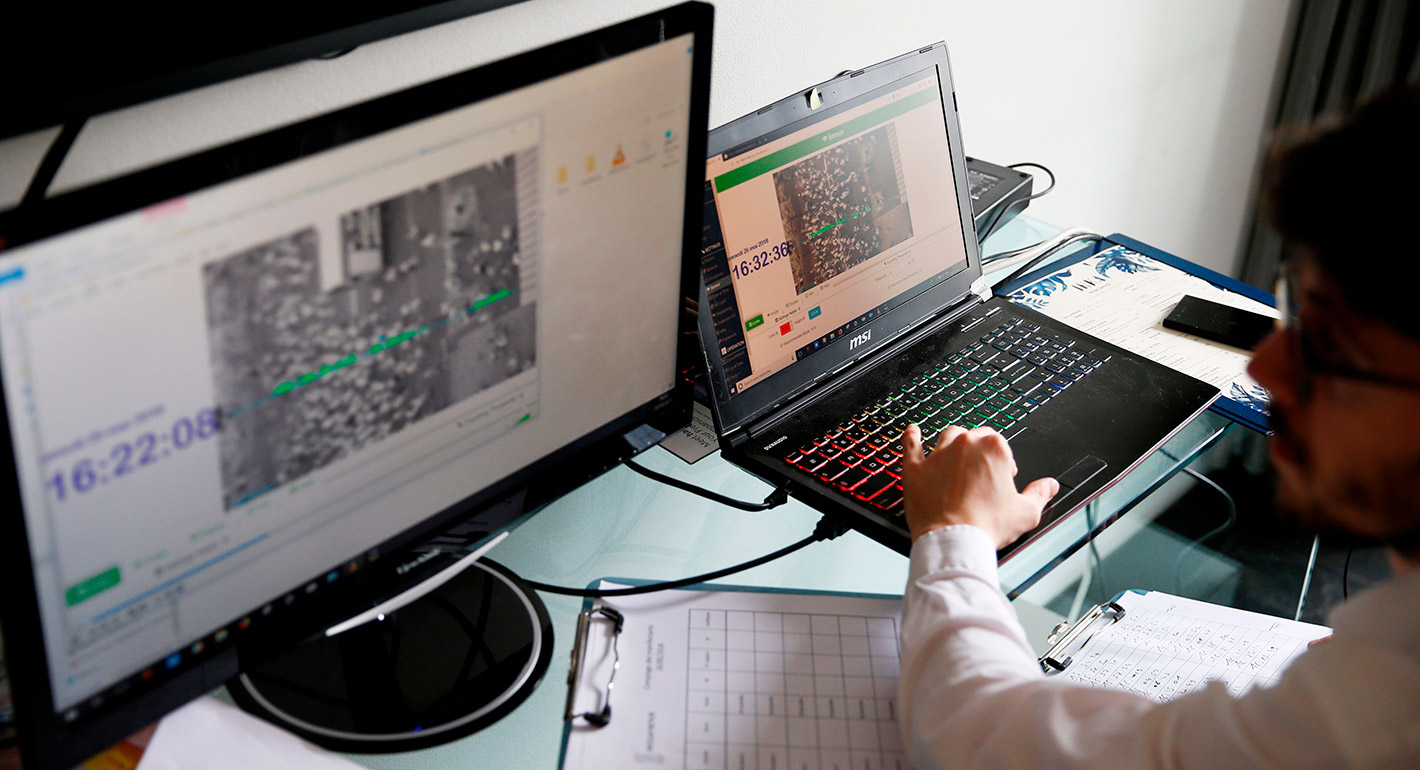The bills differ in minor but meaningful ways, but their overwhelming convergence is key.
Alasdair Phillips-Robins, Scott Singer

Source: Getty
While the EU is absolutely right to be taking steps to limit the power of the tech giants, it is remiss in neglecting the benefits of digital democracy.
This article is part of the Reshaping European Democracy project, an initiative of Carnegie’s Democracy, Conflict, and Governance Program and Carnegie Europe.
As digital technologies become increasingly ubiquitous and important parts of daily life, their downsides have become more apparent. Tech giants, including Google, Amazon, and Facebook, offer digital tools only in exchange for people’s personal data. Digital service providers are becoming overly powerful monopolies. And digital technologies are exerting an unhealthy influence over the media.
In recent months, the EU has moved its efforts to tackle the negative aspects of the digital sphere up a gear and has taken a stand against the tech giants. Brussels has generated some of this year’s biggest headlines by focusing on tech regulation, heavily fining Google over its Android operating system, investigating how Amazon uses its merchant data, questioning Facebook founder Mark Zuckerberg in the European Parliament after the Cambridge Analytica scandal, and rolling out the new General Data Protection Regulation (GDPR).
The EU is also closely monitoring how tech companies handle content that appears on their platforms. It has developed a code of conduct for countering illegal hate speech online, issued a communication on securing free and fair European Parliament elections as part of an increasingly concerted effort across Europe to protect the integrity of elections from cyber threats, and produced a Code of Practice on Disinformation for managing online fake news.
Policymakers in Brussels have recently been overwhelmingly focused on constraining the negative forces of the digital world. The EU’s approach appears to be driven increasingly by a fear of digital tools and their disruptive or destructive potential.
However, European policymakers should avoid taking an overly negative tack and not overlook the huge potential of digital solutions to drive positive change in society—and especially to improve European democracy. Brussels can and should be doing more to harness digital innovation and channel it in a positive, pro-democratic direction. While the EU is absolutely right to be taking steps to limit the power of the tech giants, it is remiss in neglecting the benefits of digital democracy.
There are many examples of digital democracy working well across Europe. Tools are increasingly being used to reinvigorate and improve citizen participation in democratic decisionmaking. As voter turnout rates decline and party membership drops, citizens are switching to online political engagement. Far from being apathetic, many European citizens are taking advantage of new ways to make their voices heard. Digital participation is easy, affordable, and can reach a wide audience. Some of the best-known initiatives across Europe have been introduced by city administrations. Other initiatives have come from national governments or civil society.
Information and communication technology (ICT) can be used to implement more participatory mechanisms and foster democratic processes. Often referred to as e-democracy, there is a large range of very different possibilities for online engagement, including e-initiatives, e-consultations, crowdsourcing, participatory budgeting, and e-voting. Many European countries have started exploring ICT’s potential to reach more citizens at a lower cost and to tap into the so-called wisdom of the crowd, as governments attempt to earn citizens’ trust and revitalize European democracy by developing more responsive, transparent, and participatory decisionmaking processes.
For instance, when Anne Hidalgo was elected mayor of Paris in May 2014, one of her priorities was to make the city more collaborative by allowing Parisians to propose policy and develop projects together. In order to build a stronger relationship with the citizens, she immediately started to implement a citywide participatory budgeting project for the whole of Paris, including all types of policy issues. It started as a small pilot, with the city of Paris putting forward fifteen projects that could be funded with up to about 20 million euros and letting citizens vote on which projects to invest in, via ballot box or online. Parisians and local authorities deemed this experiment successful, so Hidalgo decided it was worth taking further, with more ideas and a bigger pot of money. Within two years, the level of participation grew significantly—from 40,000 voters in 2014 to 92,809 in 2016, representing 5 percent of the total urban population. Today, Paris Budget Participatif is an official platform that lets Parisians decide how to spend 5 percent of the investment budget from 2014 to 2020, amounting to around 500 million euros. In addition, the mayor also introduced two e-democracy platforms—Paris Petitions, for e-petitions, and Idée Paris, for e-consultations. Citizens in the French capital now have multiple channels to express their opinions and contribute to the development of their city.
In Latvia, civil society has played a significant role in changing how legislative procedures are organized. ManaBalss (My Voice) is a grassroots NGO that creates tools for better civic participation in decisionmaking processes. Its online platform, ManaBalss.lv, is a public e-participation website that lets Latvian citizens propose, submit, and sign legislative initiatives to improve policies at both the national and municipal level. Once an initiative gets 10,000 signatures online, it is submitted to elected representatives for a hearing. Since the creation of ManaBalss.lv in late 2010, 314 citizens’ initiatives have been launched1—thirty-seven of these have been submitted to the parliament and twenty-five have been officially approved (and thirteen more initiatives are currently in the discussion process). In other words, over 68 percent of submitted initiatives have been adopted into law. ManaBalss.lv has been recognized around the world as an open government success story; it was mentioned by then U.S. president Barack Obama,2 featured in the New York Times and the Guardian, and lauded by organizations like the OECD.
In Finland, the government itself introduced an element of direct democracy into the Finnish political system, through the 2012 Citizens’ Initiative Act (CI-Act) that allows citizens to submit initiatives to the parliament. The rules are simple: any citizen of voting age can propose an initiative that either changes existing legislation or constitutes a completely new bill. Initiatives must receive 50,000 signatures in six months, in paper or online, before the parliament will discuss it. Although it is mandatory for members of parliament to consider successful initiatives, they can decide to amend or reject the proposals.
Civil society has also played an important role in Finland. Shortly after adoption of the CI-Act, a Helsinki-based NGO called Open Ministry, or Avoin Ministeriö, was founded specifically to support CI-Act legislation and campaign for a more open government and democracy. Open Ministry created an online platform, Avoinministerio.fi, where citizens’ initiatives could be discussed, promoted, and voted for, in order to facilitate the process of collecting the requisite 50,000 signatures. Subsequently, the Finnish Ministry of Justice opened an official online system (www.kansalaisaloite.fi) to collect statements of support.
Other civic tech NGOs across Europe have been developing and experimenting with a variety of digital tools to reinvigorate democracy. These include initiatives like Science For You (SCiFY) in Greece, Netwerk Democratie in the Netherlands, and the Citizens Foundation in Iceland, which got its start when citizens were asked to crowdsource their constitution in 2010.
Outside of civil society, several private tech companies are developing digital platforms for democratic participation, mainly at the local government level. One example is the Belgian start-up CitizenLab, an online participation platform that has been used by more than seventy-five municipalities around the world. The young founders of CitizenLab have used technology to innovate the democratic process by listening to what politicians need and including a variety of functions, such as crowdsourcing mechanisms, consultation processes, and participatory budgeting. Numerous other European civic tech companies have been working on similar concepts—Cap Collectif in France, Delib in the UK, and Discuto in Austria, to name just a few. Many of these digital tools have proven useful to elected local or national representatives.
While these initiatives are making a real impact on the quality of European democracy, most of the EU’s formal policy focus is on constraining the power of the tech giants rather than positively aiding digital participation.
In the last five years, only three EU programs have funded work directly related to digital democracy: a 700,000-euro package under the Rights, Equality and Citizenship (REC) program (2016); 1.6 million euros under Erasmus+ Forward Looking Cooperation Projects (2015); and 5 million euros for academic research under the Horizon 2020 Inclusive, Innovative and Reflective Societies program (2014). These investments are a drop in the ocean of the EU’s total budget of more than 1 trillion euros. The European Commission has been more focused on enhancing the Digital Single Market, especially access to e-government services, e-health, telecommunications, and e-infrastructure, and on funding more traditional forms of civic engagement under the Europe for Citizens and REC programs.
Looking ahead, the European Commission has proposed a 9.2-billion-euro Digital Europe program, with five priorities for 2021–2027: supercomputers, AI, cybersecurity, digital skills, and the wider use of digital technologies, mainly for public administration and services. Digital democracy is conspicuously absent from the proposal. Policymakers are increasingly nervous to utilize the digital space, particularly because discourse around digital tools and the innovation of democratic processes has been widely co-opted by populist movements in Europe. It is also strongly associated with distrusted instruments of direct democracy like referendums—which have, of course, delivered several shocks to the European system in the last decade.
EU officials give the impression that concern over threats now associated with the digital space can obscure the opportunities. Asked whether digital technologies could alleviate people’s frustration with traditional politics by supporting participation and collaboration between decisionmakers and citizens, a European Commission official vigorously questioned the notion that technology can strengthen democracy, referring to social media as the genesis of modern disinformation and arguing that technology undercuts personal freedom rather than empowering individuals. This anecdote, among many similar stories, is indicative of the now disproportionate focus on the negative aspects of digital tools within EU institutions.
Policymakers’ concerns are somewhat justified, and they are right to look critically at the practice of digital democracy. Digital tools are not without their flaws. Evidence shows that digital participation may backfire if tools are implemented poorly, citizens’ expectations are not adequately managed, and decisionmakers do not act upon the results of digital consultations in a meaningful way. Implementation is key—otherwise, digital tools can damage, rather than invigorate, democratic practice. But the aforementioned examples—in France, Latvia, and Finland, among others—show that when e-participation platforms are used to complement, rather than replace, existing democratic processes and when decisionmakers follow up on the outcomes, digital tools can be highly successful and strengthen democratic participation.
Ultimately, policymakers must understand that their resistance to digital democracy is an anachronism that will lead to missed opportunities and risks frustrating engaged citizens. The reality is that digital democracy is already here, whether governments are ready or not. The question for policymakers is whether they can and will harness its power to reinvigorate Europe’s ailing democratic institutions and processes—or whether, as at present, they will fail to realize the potential of ICT, or even let it erode European democracy.
There are three main ways for the EU to start exploring the potential of digital tools for reshaping European democracy.
Some tech companies may be ready to collaborate. Uber’s chief executive, Dara Khosrowshahi, stated in an interview with Politico earlier this year that tech companies realize they will need to take greater responsibility or risk facing more regulation. Similarly, Apple CEO Tim Cook, at the fortieth International Conference of Data Protection and Privacy Commissioners in Brussels, praised the “successful implementation” of GDPR as an example that should be followed worldwide. Facebook recently hired Nick Clegg, a former European Commission trade negotiator and member of the European Parliament, as its head of global policy. These examples demonstrate willingness in the tech sector to build a better relationship with Brussels and work more closely with EU public institutions on frameworks and policies to govern the digital sphere.
Broadly, the EU needs a change of attitude. Policymakers at all levels need to resist succumbing to their fear of disruptive digital technologies and acknowledge that digital democracy is here to stay—and will only grow in importance. The key challenge policymakers face is not only to constrain tech giants—however much certain elements of their conduct demand stricter control—but also to harness their potential for democratic innovation in Europe.
Moves to mitigate the negative effects of the digital sphere are welcome and necessary. But the EU must not stray too far away from policies that try positively and proactively to shape the future of digital democracy. The power of digital technology needs to be channeled in the right direction—toward reviving European democracy.
Elisa Lironi is digital democracy manager at the European Citizen Action Service.
1 Data collected until December 10, 2018, from https://manabalss.lv/.
2 In 2012, Obama mentioned ManaBalss.lv in the Open Government Partnership initiative launch event as one of the top examples of open government.
Carnegie does not take institutional positions on public policy issues; the views represented herein are those of the author(s) and do not necessarily reflect the views of Carnegie, its staff, or its trustees.
The bills differ in minor but meaningful ways, but their overwhelming convergence is key.

Alasdair Phillips-Robins, Scott Singer
A prophetic Romanian novel about a town at the mouth of the Danube carries a warning: Europe decays when it stops looking outward. In a world of increasing insularity, the EU should heed its warning.

Thomas de Waal
For a real example of political forces engaged in the militarization of society, the Russian leadership might consider looking closer to home.

James D.J. Brown
Local political and social dynamics will shape the implementation of any peace settlement following Russia’s war against Ukraine—dynamics that adversaries may seek to exploit.

Daryna Dvornichenko, Holger Nehring
The second International AI Safety Report is the next iteration of the comprehensive review of latest scientific research on the capabilities and risks of general-purpose AI systems. It represents the largest global collaboration on AI safety to date.


Scott Singer, Jane Munga